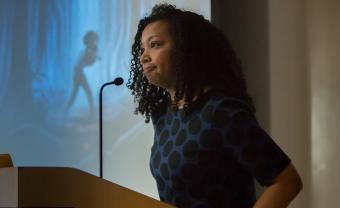The London-based Eyewear Publishing has named Professor Stephen Haven, who teaches Creative Writing in our College of Liberal Arts and Sciences and in our MFA in Creative Writing program, to its shortlist for the 2018 International Beverly Prize.
Haven’s manuscript of poetry, “Old Boston Roads,” is one of 11 works on the shortlist of finalists for the prize, which is in its third year. The competition is open to unpublished manuscripts in all genres by authors writing in English anywhere in the world. The winning manuscript will be published by Eyewear. The publisher has not yet revealed the selection date.
“The Beverly Prize is an unusual competition in that my poetry manuscript is competing against novels, short story collections, volumes of nonfiction, as well as other poetry collections,” Haven says. “While my work has been a finalist in publication competitions before, this is the first time I have placed a manuscript in the final round of an international book prize.”
The former director of our MFA in Creative Writing program, Haven joined the undergraduate faculty last academic year. He won the 2011 New American Prize for his poetry collection “The Last Sacred Place in North America." Haven has also published the poetry collections “Dust and Bread” (Turning Point, 2008) and “The Long Silence of the Mohawk Carpet Smokestacks” (West End/University of New Mexico Press, 2004). His memoir, “The River Lock,” was published by Syracuse University Press in 2008. Haven has also published poems in a surfeit of poetry magazines and other journals.
“A rich awareness of American ‘place’ is at the center of Stephen’s poetry: place both geographical and natural, within a complex social reality, within a long literary tradition, American and global,” says Dr. Christine Evans, Humanities division chair. “He evokes and asks his reader to draw on and keep these associations fully in mind when approaching his poems.”



